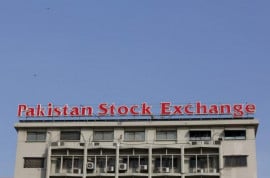
The average inflation for 51 essential goods, mostly used by low and middle-income groups, jumped above 20% during the latest week over a year ago amid serious contradictions in the official data used to calculate the price growth.
The year-on-year Sensitive Price Indicator (SPI) increased to 20.04% during the week ended June 2, over the same week a year ago, reported the Pakistan Bureau of Statistics (PBS) on Friday.
SPI is computed on a weekly basis to assess the price movements of essential commodities at a shorter interval of time to review the price situation in the country. It comprises 51 essential items, for which data was collected from 50 markets in 17 cities of the country.
The PBS bulletin showed that the SPI surged 16.7% for the lowest income quintile while it was up 21.7% for the highest quintile, bringing the average to 20.04%.
However, a serious discrepancy is seen in the reporting of wheat and flour rates in various cities of Punjab.
The 20kg bag of wheat flour was shown at a flat rate of Rs980 across Punjab. It was the second time the average wheat flour price of Rs980 per 20kg bag was reported. The figure seems unrealistic as the flour was not available at these rates across the province.
However, the glaring contradiction can be gauged from the 10kg wheat price reported in the same annexure. PBS reported the 10kg wheat price at Rs700 in Gujranwala while in the same city it reported the 20kg wheat flour price at Rs980. This means either the wheat price is incorrect or the wheat flour price is underreported.
The price of Rs700 for 10kg wheat is slightly higher than in Bannu and Hyderabad, where usually the prices have remained higher than in Punjab – the province that produces 70% of wheat in the country.
On Wednesday, the PBS reported the CPI-based inflation rate at 13.8% and had used the average Rs980 per kg wheat flour price in Punjab. The decision to use the average Rs980 per 20 kg bag of wheat flour price, which was based on the same minimum and maximum rate almost across Punjab, particularly in Lahore, might have played a role in the relatively low inflation reading of 13.8% last month.
The average price of wheat flour in Lahore has touched Rs1,082 and Rs1,288 in Islamabad, showing for the first time a difference of Rs206 per 20 kg bag.
While reporting the Sensitive Price Index in May, the PBS used minimum and maximum Rs980 per 20 kg wheat flour price for all cities of Punjab except Rawalpindi where the minimum was the same but the maximum was Rs1,352 per bag. This suggested that in Rawalpindi, the gap of 20 kg bag was Rs372 in the same city.
Earlier on May 12 and in other weeks, the prices in Punjab were shown between Rs1,300 to Rs1,400 per 20 kg bag.
The Punjab government had announced a Rs7.3 billion subsidy on wheat flour in the province. But the money could not be approved in absence of the provincial cabinet.
Just this Tuesday, the federal government approved the Rs7.3 billion as a bridge finance facility for the province.
Steve Hanke, an economist at John Hopkins University, tweeted on Thursday that the PBS has released inflation numbers for May.
“They (PBS) claim that actual inflation in Pakistan is 13.76% year on year and 0.44% on the month. False. Today, I accurately measure annual inflation at 38.17% yearly and monthly inflation at a staggering 7% per month,” said Hanke.
The PBS reported that during the week ended on June 2, the SPI recorded an increase of 2% in just one week. An increase was observed in the prices of food items like potatoes, eggs, vegetable ghee, mustard oil, masoor pulse, cooking oil, and beef.
In the category of non-food items, hi-speed diesel price rose 20.7%, petrol (super) 20%.
During the week, out of 51 items, prices of 28 items increased, five items decreased and 18 items remained stable.
The inflation is expected to skyrocket further after the government increased the fuel prices by another Rs30 per liter on Thursday.
Published in The Express Tribune, June 4th, 2022.
Like Business on Facebook, follow @TribuneBiz on Twitter to stay informed and join in the conversation.




1716998435-0/Ryan-Reynolds-Hugh-Jackman-(3)1716998435-0-165x106.webp)











1730706072-0/Copy-of-Untitled-(2)1730706072-0-270x192.webp)
COMMENTS
Comments are moderated and generally will be posted if they are on-topic and not abusive.
For more information, please see our Comments FAQ